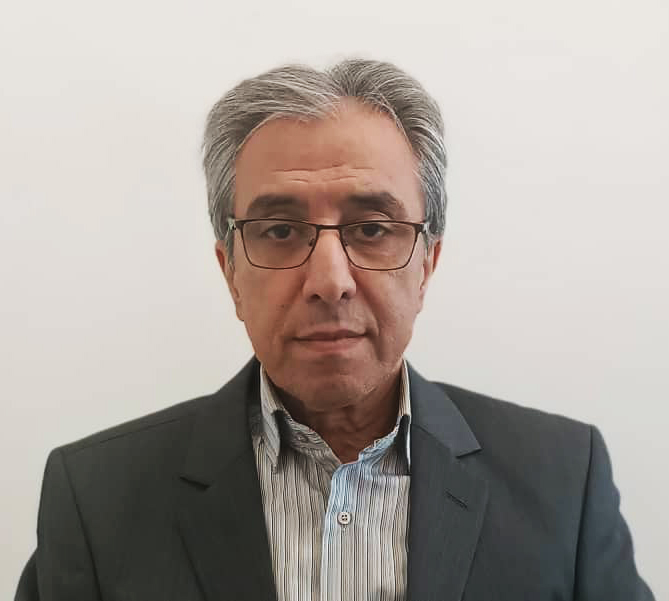-
Contact the Secretariat:
info@icmcongress.com
- Register
Prof. Saeid Bouzari
The microbiome, deep microbial adaptations to humans
The science of the microbiome deals with the importance of the presence of microbiota species in the human body and its role in various mechanisms of the human body, including nutrition, cancer, infertility, the digestive system, the cardiovascular system, etc.
RegisterScientific Secretary of the Microbiome Congress
Dear Participants, Researchers, and Colleagues,
I am delighted to welcome you to the ICM Congress, an event that brings together the brightest minds in microbiome science. As the Scientific Secretary, it is my privilege to share with you the exciting scientific programs we have organized to make this congress an enriching and transformative experience.
The field of microbiome research has made extraordinary strides in recent years, and this congress aims to showcase the latest advancements, address key challenges, and explore the future of microbiome science across various domains. Our scientific agenda has been carefully crafted to foster intellectual exchange, collaboration, and innovation. Below, I would like to outline some of the key scientific highlights:
1. Keynote Lectures
We are honored to host renowned experts from across the globe who will present their groundbreaking research and perspectives on the microbiome. These keynote lectures will cover a wide range of topics, including:
The human microbiome and its impact on chronic diseases such as diabetes, IBD, and neurological disorders.
Advances in microbiome-based therapies and personalized medicine.
Microbial diversity and its role in environmental sustainability.
These sessions are designed to provide in-depth insights into the most pressing questions and emerging trends in microbiome research.
2. Thematic Sessions
We have organized a series of thematic sessions that will delve into specialized areas of microbiome science. These include, but are not limited to:
Gut Microbiome and Health: Exploring the relationship between gut microbes and metabolic, immune, and neurological health.
Microbiome and Infectious Diseases: Investigating how microbiomes influence infection, immune response, and antimicrobial resistance.
Industrial and Agricultural Applications: Examining the role of microbiomes in sustainable agriculture, bioremediation, and industrial biotechnology.
These sessions will feature presentations from both early-career researchers and established experts, offering a diverse range of perspectives and findings.
3. Workshops and Interactive Panels
To complement the scientific sessions, we have organized interactive workshops and panels to encourage hands-on learning and discussion. These sessions will focus on:
Advanced microbiome analytical techniques, including metagenomics, transcriptomics, and metabolomics.
Microbiome-based product development in agriculture and health.
Ethical, regulatory, and societal implications of microbiome-based innovations.
These sessions are designed to be highly interactive, allowing participants to engage directly with the speakers and share their own experiences and insights.
4. Poster Presentations and Networking Opportunities
As part of our commitment to fostering collaboration, we will host poster presentations where researchers can showcase their latest findings and innovations in microbiome science. This will provide an excellent opportunity for networking, feedback, and potential collaboration.
5. Future Directions and Emerging Research
The congress will also explore the future directions of microbiome research, with a focus on:
Microbiome engineering and synthetic biology.
The role of the microbiome in aging and longevity.
New therapeutic strategies involving microbiome modulation, such as fecal microbiota transplantation (FMT) and microbiome-based vaccines.
These sessions aim to inspire new research ideas and address gaps in current knowledge, shaping the future of the microbiome field.
6. Student and Early-Career Scientist Sessions
We are committed to supporting the next generation of microbiome researchers. Special sessions and mentorship opportunities will be dedicated to students and early-career scientists, providing them with a platform to present their research, seek guidance, and develop valuable connections within the scientific community.
This congress is a unique opportunity to engage with the cutting-edge science that is shaping the future of microbiome research. We encourage you to actively participate in the discussions, ask questions, and connect with fellow researchers, as this is the best way to maximize the benefits of this event.
I look forward to the inspiring talks, thought-provoking debates, and fruitful collaborations that will emerge from our shared commitment to advancing microbiome science.
Warm regards,
Saeid Bouzari

Congress
sponsors








